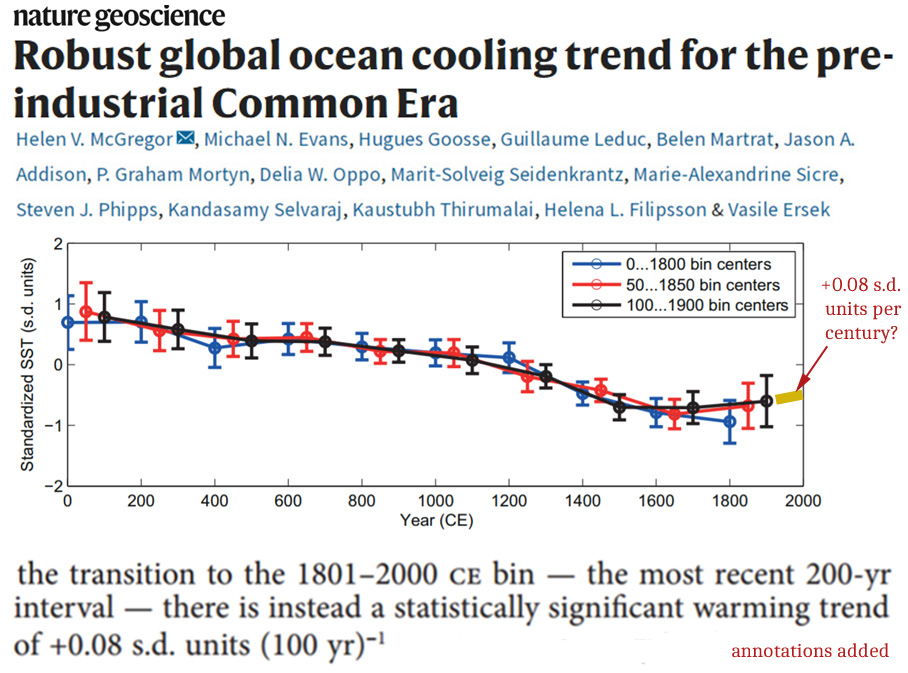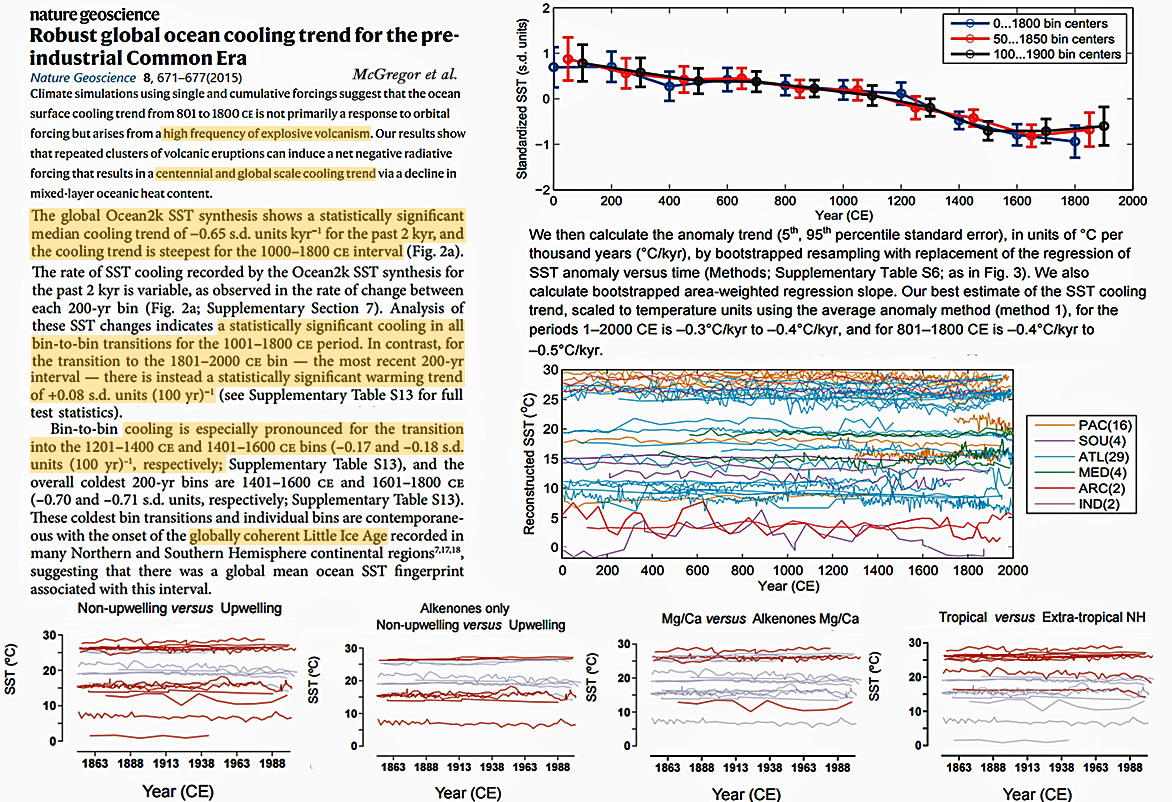It didn’t receive much a attention in 2015, but a comprehensive Nature journal study of 0-2000 A.D. global sea surface temperatures shows 1) climate changes occurred more than twice as fast during the Little Ice Age (LIA) than since 1800, 2) the entire first millennium was >1 standard deviation (s.d. unit) warmer than today, and 3) 1800-2000 ocean changes amounted to just 0.08 of a s.d. unit per century.

Adapted Image Source: McGregor et al., 2015
There are several reasons to question the presentation of data in McGregor et al., 2015. – a global-scale reconstruction of sea surface temperatures.
The myriad authors decided not to clearly depict actual temperature changes in their reconstruction, preferring instead to “reimagine” temperatures as standard deviation units.
The graphical presentation of “standardized SST [sea surface temperature] s.d. units” abruptly and curiously stops in 1900. This unexplained truncation was used despite mentioning in the body of the paper that the 1900-2000 period had a “statistically significant” warming trend of (just) 0.08 s.d. units/century – half of the century-scale changes during 1200-1400 and 1400-1600 (0.17 and 0.18 s.d. units/century, respectively). Perhaps the insignificance of the post-1900 uptick wasn’t considered helpful to the AGW (anthropogenic global warming) narrative.
The graphs depicting no remarkable modern global ocean temperature changes (shown below), such as the ones with flatline trends from the 1860s to 2000, are buried in the supplemental information for the paper, making the data and graphs less accessible. One would think that the lack of any remarkable or anomalous global temperature changes occurring during modern times would deserve some scientific attention.
Finally, this study shows the Roman Warm Period and Medieval Warm Period were globally warmer than today at the ocean surface (with some location and timing differences). It also affirms the LIA was “globally coherent.” The authors even identify the mechanism for “robust” LIA cooling: “high frequency explosive volcanism” with centennial-scale impacts.
At least the latter point made its way into the paper’s abstract…rather than hidden or buried.






Unanimous proxy evidence for ocean temperature near stasis over the last 200 years is not exactly ringing endorsement of the Argo float data, which shows nothing but OMG global warming. Something’s not right. Where’s Josh Willis when you need him?
Too early to say, as with HADSST3, Argo shows no net change 2005 – 2015 then rising to a peak 2016 – 2017 correlating with a strong El Niño.
Any effect of the approaching La Niña remains to be seen.
[…] Unheralded Global Ocean 2000-Year Temperature Reconstruction Reveals Embarrassingly Small Modern Cha… […]